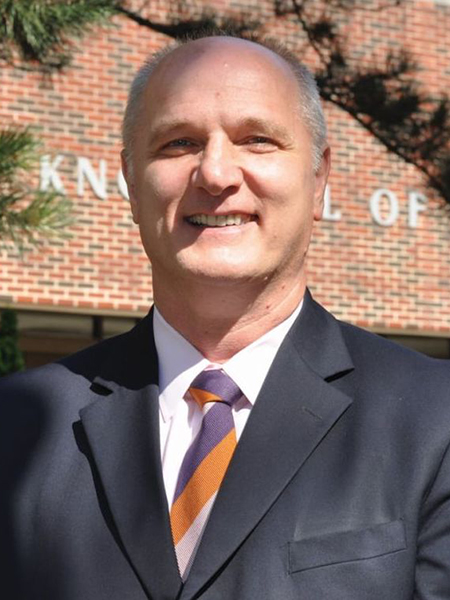Purdue to host CIB World Building Congress in 2025

Purdue University will host the 23rd World Building Congress (WBC2025) at its campus in West Lafayette from May 19-23, 2025. The title of the conference is “Sustainable Built Environment – The Role of the Construction Community in Meeting the UN SDGs.” Sustainable Development Goals (SDGs) include industry, innovation and infrastructure; responsible consumption and products; sustainable cities and communities; and decent work and economic growth, to name just a few.

This is the first time the conference has been held at Purdue and only the third time in the U.S.
The International Council for Research and Innovation in Building and Construction (CIB), established in 1953 with support from the United Nations, has members in 55 different countries and holds its World Building Congress every three years, with the purpose of bringing together worldwide experts in building and construction to share their expertise.
Leading the Congress are CIB President Makarand (Mark) Hastak, former associate dean of engineering for facilities and planning in Indianapolis and Dernlan Family Head of Construction Engineering and Management (CEM) at Purdue, and co-chairs Z. Torbica and Bryan Hubbard, former heads of the School of Construction Management Technology at Purdue.

According to the EPA, the built environment touches all aspects of our lives, encompassing the buildings we live in, the distribution systems that provide us with water and electricity, and the roads, bridges and transportation systems we use to get from place to place. It can generally be described as the man-made or modified structures that provide people with living, working and recreational spaces. Creating all these spaces and systems requires enormous quantities of materials. The use and reuse of materials, in the most productive and sustainable way over their entire life cycles, can help the U.S. and other countries address their material and resource needs in the built environment while remaining competitive in the global economy.
”This is why the Congress’ theme is on sustainability and reflects the core of our work at CIB,” said Hastak. “CIB has 35 working commissions and five task groups – a worldwide network of experts in defined scientific areas who meet regularly and collaborate in international projects exchanging information on a voluntary basis. The Congress is open to anyone working in the built environment.”
These areas include everything from construction engineering, construction management, architecture and building science research to education in the built environment, construction materials stewardship and much more.
The Congress will include CIB Doctoral School 2025, a platform for doctoral researchers to present their ongoing research and receive constructive feedback from a diverse and esteemed academic panel of experts; Industry Forum, which will provide a platform for presenting industry and academic innovation that has resulted in successful practical applications; and other platforms for sharing information. Exhibition space and sponsorships are available.
The submission deadline of full papers for the Congress is Nov. 18. All full papers will be subject to blind peer reviews before acceptance and notification of acceptance or rejection will be made Dec. 23. Proceedings and papers will be published following the Congress.
Registration is open and both in-person and virtual conference options are available. Hastak expects between 600-1,000 to attend the event online or in person. The sessions are planned to accommodate time zones around the world with online sessions running from 7-9 a.m. and 5-7 p.m. and in-person hours from 9 a.m. to 5 p.m.
For questions, email CIB President Makarand (Mark) Hastak or his conference co-chairs Z. Torbica and Bryan Hubbard.
Regular updates will be available on the website.
